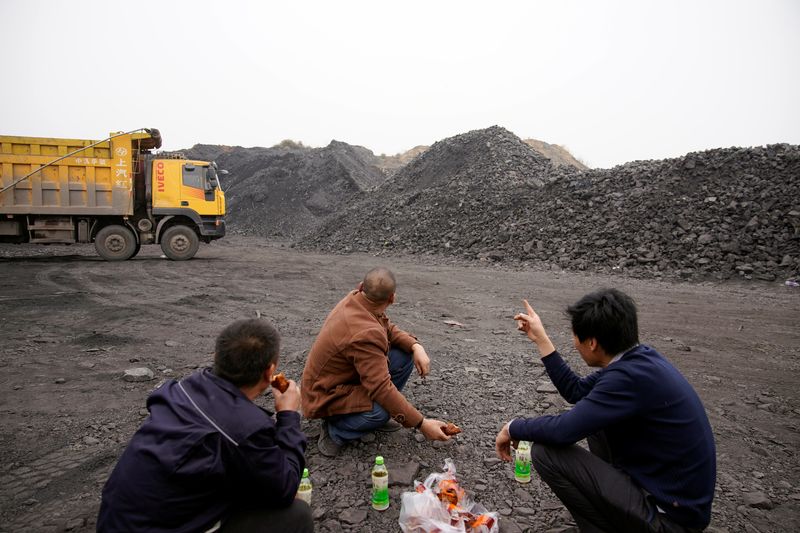China’s July daily coal output jumps 16% yr/yr on peak summer demand
2022.08.15 08:41

FILE PHOTO” Coal truck drivers take break at lunch time in Pingdingshan, Henan province, China November 5, 2021. Picture taken November 5, 2021. REUTERS/Aly Song
SINGAPORE (Reuters) -China’s daily coal output in July surged 16% from a year earlier following Beijing’s call for miners to ensure sufficient supply during the peak summer demand season.
The country produced 372.66 million tonnes of coal last month, equivalent to 12.02 million tonnes per day, data from the National Bureau of Statistics (NBS) showed on Monday.
This compares with the 10.13 million tonnes per day produced in July 2021 and the 12.64 million tonnes in June.
Over the January-July period, coal production was 12% higher than a year earlier at 2.56 billion tonnes.
The central government has held several meetings in recent weeks at which it reiterated its determination to avoid power rationing during the summer, when demand for air conditioning spikes. It asked coal miners to boost output and fulfill term-contracts with power utilities.
Average daily coal consumption in major coastal regions was above 2.3 million tonnes in early August, about 6% higher than the same period last year, according to data from Sxcoal.
Some regions, including cities in the manufacturing hubs of Zhejiang and Jiangsu, have carried out rolling blackouts at local factories to protect electricity supplies to residential users at times of peak demand.
Monday’s data also showed China’s power generation in July rose 4.5% from a year ago to 805.9 billion kilowatt-hours, marking the fastest year-on-year growth since September 2021.
Power demand has been subdued since March as stringent COVID-19 restrictions have curbed industrial activity.
However, analysts and market participants expect coal output could be curtailed by intensifying safety checks following a fatal mining accident in the major coal mining hub of Shanxi in early August.
Temperatures in northern China are forecast to fall in late August, which should reduce demand for coal for power generation.








